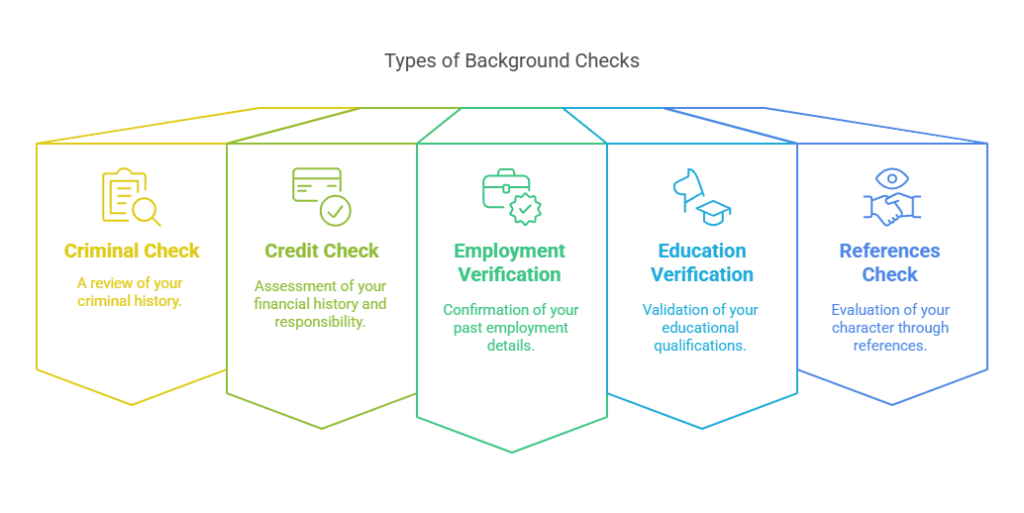Navigating the Department of Defense (DoD) background check process can be daunting. If you're a contractor seeking to work with the DoD, understanding these requirements is crucial to ensuring a smooth transition into your role. We'll break down the steps and requirements, from obtaining a security clearance to meeting federal contract stipulations. Plus, we've included a downloadable checklist to help you keep track of everything you need.
Key Takeaways
- The DoD background check process is crucial for ensuring national security and involves rigorous vetting of all contractors.
- Various types of checks such as criminal, credit, employment, education, and references are conducted to assess an individual's trustworthiness.
- Security clearances come in three levels—Confidential, Secret, and Top Secret—with each requiring progressively more thorough background investigations.
- The process to obtain a DoD background check includes application submission, preliminary checks, in-depth investigation, adjudication, and continuous evaluation.
- Accuracy, honesty, and proactive document preparation are vital for a smooth and successful DoD background check process.
Introduction
Landing a DoD contract is a prestigious achievement, but it comes with rigorous background check requirements that can be a maze for the uninitiated. The DoD background check process is vital for maintaining national security, ensuring that only the most reliable and trustworthy individuals gain access to sensitive information and critical projects.
In this article, we'll walk you through the ins and outs of the DoD background check process for contractors. From what types of checks you'll undergo to the steps you need to take to obtain your security clearance, we'll cover it all. Plus, we've included a handy, downloadable checklist to help you stay organized and on top of your game. Whether you're a seasoned contractor or a newbie looking to break into the field, our comprehensive guide will equip you with the knowledge you need to navigate this crucial process.
What is a DoD Background Check?
A DoD background check is a meticulous investigation designed to verify an individual's trustworthiness and eligibility to handle classified information and participate in federal contracts. This process is not just a bureaucratic hurdle; it's a critical component of the national security framework aimed at protecting sensitive data. Contractors who seek to work with the DoD must undergo this process to ensure they meet the government's stringent security requirements.
The importance of these background checks cannot be understated. By thoroughly vetting every potential contractor, the DoD aims to mitigate any risks associated with insider threats, espionage, or activities that could compromise national security. This is essential for the integrity of specific projects and the country.
So, who needs to go through this intensive background check? In short, any contractor seeking to work with the DoD will be subject to this scrutiny. Whether you’re a software engineer, logistics manager, or cybersecurity specialist, you must pass the DoD background check if your work involves access to classified information or secure networks. Failing to meet these stringent criteria means you’ll likely miss out on high-stakes, high-reward opportunities.
EXPERT INSIGHT: The process owners of background checks know how challenging it can be to navigate its intricate process -- We in the HR team are part of that. We know that every single decision we make has the endless possibility to shape our work ecosystem and affect people's lives. Yes, these people are not only the employer but also the employees. The background check for contractors may sound basic, but it plays an essential part in ensuring we're hiring candidates who are a good fit. Having a deep understanding of these checks (inside and out) empowers us to make bias-free decisions that contribute to safer, more cohesive work environments. - Charm Paz, CHRP
Types of Background Checks for DoD Contractors
Securing a Department of Defense (DoD) role involves conducting several background checks. Each serves a specific purpose, ensuring that those granted access are thoroughly vetted and can be trusted with sensitive information. Here, we break down the main types:
Criminal Background Check
A deep dive into your criminal history across state, county, and federal databases. Any past offenses will come under scrutiny. You can learn more about what's involved through this criminal background checks resource.
Credit Check
The DoD takes a hard look at your financial history. This isn’t just about your credit score; it’s about assessing your financial responsibility and stability. High debt or financial mismanagement levels can be seen as potential vulnerabilities, given that economic pressure might make an individual susceptible to coercion.
Employment Verification
Accuracy in reporting past employment is crucial. The DoD verifies your employment history to ensure you have the experience and credibility you claim. This includes checking dates of employment, positions held, and potentially the reasons for leaving previous jobs.
Education Verification
Your educational qualifications and certifications have also been verified. This isn't just a formality—it's about ensuring that your educational background matches what's required for the job and that you haven’t embellished or falsified your academic achievements.
References Check
Expect to be contacted by your personal and professional references. The DoD seeks insight into your character, work ethic, and reliability from those who know you well. Be prepared to provide references who can speak positively and specifically about your qualifications and background.
Understanding these types of checks is fundamental if you aim to work with the DoD. Being thorough and honest across all these facets will help streamline the process and avoid unnecessary hiccups.

Security Clearance Levels
Security clearances for DoD contractors come in three primary flavors: Confidential, Secret, and Top Secret. Each level represents a different degree of access to classified information and a corresponding level of background scrutiny.
- Confidential: The most basic clearance level, Confidential, involves access to information that could cause damage to national security if disclosed. The investigation for this level is relatively straightforward but still thorough, covering past employment, financial history, and criminal records.
- Secret: A step up, the Secret level clearance allows access to information that could cause severe damage to national security. The background checks are more rigorous, involving a detailed review of your criminal history, credit reports, and personal conduct over the past decade. Expect more in-depth interviews and possibly a more extended investigation period.
- Top Secret: The highest standard, Top Secret clearance, grants access to information that could cause exceptionally grave damage to national security. The vetting process for Top Secret clearance is both exhaustive and intrusive. It includes extensive interviews with past employers, neighbors, and close acquaintances and a deep dive into your financial records, travel history, and personal behavior.
Special Access Programs (SAPs):
Some roles may require access to Special Access Programs (SAPs), which involve even higher levels of scrutiny beyond the standard Top Secret clearance. SAPs require additional vetting and often include polygraph tests, ongoing behavioral assessments, and stricter guidelines for reporting foreign contacts and travel. The intention is to provide an extra layer of security for especially sensitive projects that demand the utmost trustworthiness and discretion.
In summary, the level of security clearance you need will significantly influence the complexity and duration of your background check process. Understanding these levels and what’s required can help you better prepare and navigate the system effectively.
Steps to Obtain a DoD Background Check
Application Submission
When you first start the background check process, you'll need to complete the initial application through e-QIP (Electronic Questionnaires for Investigations Processing). This online form requires detailed personal information, including your employment history, education, residences, and other background details. It's important to be thorough and accurate, as any discrepancies can lead to delays or even denial of your clearance.
Preliminary Checks
After your application is submitted, preliminary checks are conducted. This usually involves fingerprinting and a basic background information review. The goal here is to quickly identify any obvious issues or disqualifiers. Make sure you have all necessary documents and identification ready for this step, as any missing pieces can hold up the process.
In-Depth Investigation
This is where things get serious. The in-depth investigation will look into your background extensively. Investigators will conduct interviews with people who know you, such as your neighbors, coworkers, and previous employers. They will delve into various aspects of your life, from financial status and criminal records to personal conduct. Transparency is key here; attempting to hide anything can lead to complications or a failed background check.
Adjudication
Once the in-depth investigation is complete, all gathered information is assessed in the adjudication phase. During this step, your entire file is reviewed to make a final determination on your eligibility for a security clearance. Each piece of information is weighed against the national security risk you might pose. If there are any unfavorable findings, you may have an opportunity to provide additional context or clarifications.
Continuous Evaluation
After receiving your clearance, it doesn't just end there. Continuous evaluation ensures that your eligibility is maintained. This means ongoing monitoring of your background and circumstances. You are also responsible for reporting any significant changes in your life, such as financial troubles or new foreign contacts, which could impact your clearance status. Being proactive and communicative in this step can save you from future complications.
By following these steps diligently and ensuring all your information is accurate and complete, you can navigate the DoD background check process more smoothly.
Specific Requirements for DoD Contractors
Understanding the unique requirements for DoD contractors is pivotal for navigating the background check process successfully. The criteria are stringent, aiming to ensure that only individuals with the highest levels of integrity and trustworthiness are granted access to sensitive information and responsibilities tied to national security. Here's what you need to know:
Past Employment and Education Verification
One of the cornerstone checks involves validating your past employment and educational history. The emphasis here is on accuracy and honesty. You'll need to provide detailed records of your previous jobs and educational qualifications. Any discrepancies or falsifications can lead to disqualification. Ensure you have official documents and contact information ready for your previous employers and alma maters.
Financial Responsibility
Your financial history is scrutinized to gauge your financial responsibility. This includes a review of your credit score, debt, and other financial obligations. The rationale is to assess whether financial pressures could potentially compromise your actions. Maintaining a clean financial record and addressing any outstanding debts proactively can bolster your eligibility.
Foreign Influence and Preferences
Another critical area under the microscope is your connections and preferences related to foreign entities. This includes dual citizenship, foreign contacts, and any affiliations that could pose a conflict of interest. The DoD is particularly wary of any ties that might jeopardize national security. Full disclosure is essential here. If you have any foreign associations, be prepared to clarify their nature and your current stance.
By meticulously preparing and understanding these specific requirements, you can enhance your chances of a smooth and favorable background check process, paving the way for a rewarding engagement with the Department of Defense.
Tips for a Successful Background Check
Accuracy and Honesty: Mistakes or omissions can lead to delays or rejections, so it’s crucial to be meticulous in listing your information. Whether it’s your employment history, education, or any other required detail, ensure that everything you provide is comprehensive and truthful.
Preparation of Documents: Gathering the necessary documents in advance can streamline your process. Have your previous employment details, financial statements, and personal references ready. Not only will this make your initial application smoother, but it will also be invaluable if you need to clarify any questions that arise during your background check.
Maintain Communication: Staying in touch with your security point of contact can help you navigate any hiccups in the process. Promptly respond to their questions and keep them updated on any changes in your situation. This proactive approach can mitigate potential delays and show your commitment to obtaining your clearance.
Frequently Asked Questions (FAQ)
Deep-diving into the nitty-gritty of background checks for contractors may raise questions so here's a list of FAQs. It is important to address them early on to avoid any confusion. The process may seem complex, but the key is understanding it for you to be on track.
What can cause a delay in my background check?
Several factors can drag out the background check process. Common culprits include incomplete or inaccurate information in your initial application, delays retrieving your criminal, credit, or employment records, and difficulty contacting your listed references. The complexity of your personal history can also play a role; for instance, frequent moves or extensive overseas travel may require additional scrutiny.
Can I appeal a denied security clearance?
Yes, you can appeal a denied security clearance. If your clearance is denied, you'll receive a statement of reasons (SOR) outlining why. You can respond to this document and provide evidence to counter the concerns raised. If your appeal at this stage is unsuccessful, you can request a hearing before an administrative judge. It's advisable to engage a security clearance attorney to guide you through the appeals process.
How often will I need to renew my security clearance?
Security clearances need periodic renewal: every 15 years for Confidential, every 10 years for Secret, and every 5 years for Top Secret. However, be aware that the Department of Defense employs a Continuous Evaluation (CE) program that subjects cleared personnel to ongoing monitoring. If significant issues arise within your renewal period, they may trigger a re-evaluation of your clearance status outside the standard timeline.
What happens if my personal circumstances change after obtaining clearance?
If there is a significant change in your personal circumstances—such as a major financial setback, a criminal arrest, or new foreign contacts—it's crucial to report these changes immediately. Failing to disclose such information could jeopardize your clearance status. The responsibility to report these changes is part of maintaining your eligibility and trustworthiness as a DoD contractor.
Feel free to refer back to these FAQs as you navigate the DoD background check process. Awareness and proactive management of these aspects can significantly smoothen your path through this rigorous, yet rewarding journey.
Conclusion
Navigating the Department of Defense (DoD) background check process can seem overwhelming, but understanding the essential steps and being thoroughly prepared can make a significant difference. Key takeaways include knowing the various types of background checks, the different levels of security clearance, and the steps involved in the background check process. Remember, accuracy and honesty in your application, as well as proactive document preparation and maintaining communication, are crucial.
This process isn't just a bureaucratic hurdle; it's a critical component of maintaining national security. For contractors, diligently completing these steps can open doors to significant career opportunities. So, take the time to understand the requirements, gather your documents, and stay in touch with your security point of contact. Your diligence today paves the way for your success tomorrow.

GCheck Editorial Team
Meet the GCheck Editorial Team, your trusted source for insightful and up-to-date information in the world of employment background checks. Committed to delivering the latest trends, best practices, and industry insights, our team is dedicated to keeping you informed.
With a passion for ensuring accuracy, compliance, and efficiency in background screening, we are your go-to experts in the field. Stay tuned for our comprehensive articles, guides, and analysis, designed to empower businesses and individuals with the knowledge they need to make informed decisions.
At GCheck, we're here to guide you through the complexities of background checks, every step of the way.






